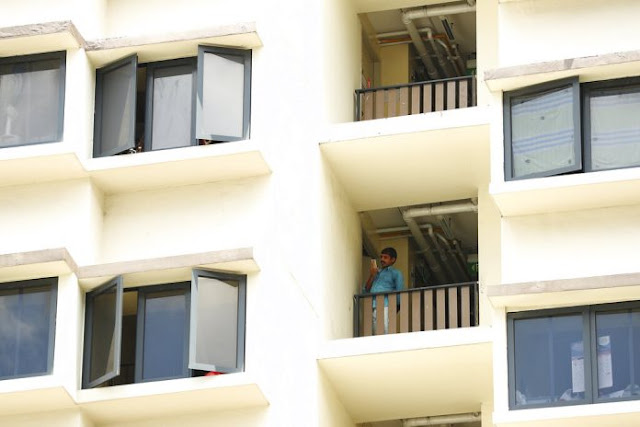SINGAPORE ACTIVELY TESTING MIGRANT WORKERS, BUT STILL NOT ENOUGH
 |
| Dale Fisher, an Australian infectious disease physician, a professor of medicine at the National University of Singapore |
SINGAPORE’s health ministry has said it is not able to test all migrant workers in dormitories and has been isolating some symptomatic patients first, a method that a government health adviser said was causing a lag in the reporting of cases.
The island nation of 5.7 million people has nearly 15,000 confirmed coronavirus infections, one of the highest totals in Asia, largely because of outbreaks in cramped dormitories housing more than 300,000 mostly South Asian workers.
The ministry today, Tuesday April 28, 2020 confirmed 528 more coronavirus infections, the smallest daily rise in almost two weeks.
Dale Fisher, chair of Singapore’s National Infection Prevention and Control committee, told broadcaster ChannelNews Asia that authorities had stopped testing some symptomatic patients in hard-hit dorms and that these infections were not being immediately reported in official tallies.
“But if any worker were to report sick or show ARI (Acute Respiratory Infection) symptoms, we will immediately pull aside and isolate the worker from his room-mates, and ensure that he receives the necessary medical care.”
The health ministry did not say whether these isolated workers would eventually be tested, but said only those confirmed with Covid-19 infection would be reported in official daily case numbers. The health ministry did not respond to a request for further comment.
Fisher, a senior consultant at Singapore’s National University Hospital who chairs an infection control committee commissioned by the government, said in an interview on Sunday that this method would cause a lag in the reporting of cases.
“We should aim to have those clinical diagnoses eventually included in the numbers. I think that honesty is important and that’s what I believe will be the case,” Fisher said. “But there will be a lag because it’s a different reporting mechanism.”
Fisher did not immediately respond to a request for further comment.
Singapore said it has been scaling up its testing capacity across the island, including in dormitories, from an average of 2,900 tests a day in early April to more than 8,000.
“The higher intensity of testing allows us to pick up far more cases than many other countries,” the health ministry said in its statement.
Singapore says it has tested 2,100 people per 100,000, compared with 1,600 per 100,000 in the United States, and 1,000 per 100,000 in Britain.
While the coronavirus has been spreading rapidly in the dormitories, many of which the authorities have sealed off, the spread in the community apart from the migrant workers has been much slower, with an average of 20 new cases a day over the past week.
Fourteen people have died of the coronavirus in Singapore.
Reported by Reuters
Edited by Permadu Malaysia
brought to you
by Fauzi Abdul Kadir
for Permadu Malaysia
● 2020 Permadu Harmony Bersepadu
All Rights Reserved







.png)




Comments
Post a Comment